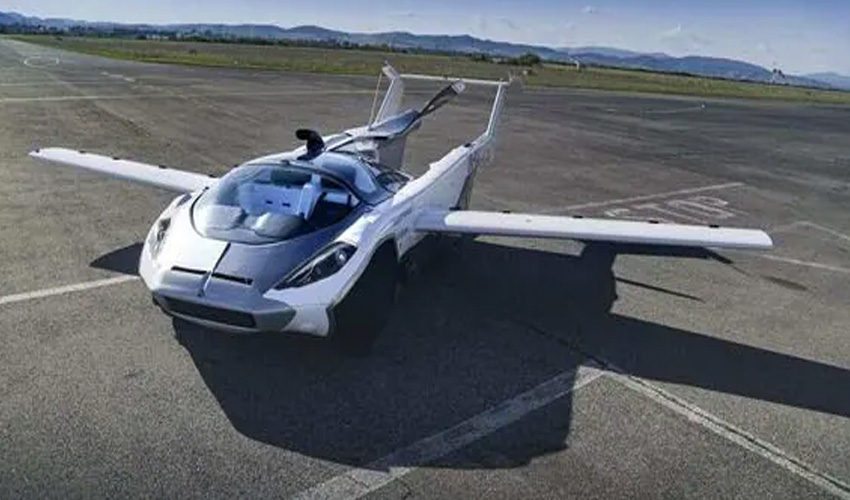A pioneering European flying car technology has been procured by a prominent Chinese firm, marking a pivotal shift in the landscape of personal aerial mobility.
The groundbreaking technology, showcased through the AirCar, initially crafted and successfully trialed within European borders, has now found a new home under the ownership of Hebei Jianxin Flying Car Technology Company, headquartered in Cangzhou, China.
The acquisition grants exclusive rights for manufacturing and utilization of AirCar aircraft within a designated area, details of which remain undisclosed.
Designed by KleinVision, the AirCar made headlines in 2021 with its remarkable feat of seamlessly transitioning from a roadworthy vehicle to a functional aircraft in just over two minutes. Powered by a BMW engine and conventional fuel, the AirCar completed a 35-minute flight between two Slovakian airports, employing conventional runways for take-off and landing.
Anton Zajac, cofounder of KleinVision, affirmed the progression, stating that Hebei Jianxin Flying Car Technology Company has already established its infrastructure, including an airport and flight school, following a prior acquisition from a Slovak aircraft manufacturer.
China's proactive stance in embracing futuristic transportation solutions is underscored by recent developments, including successful test flights of passenger-carrying drones and the accreditation of electric flying taxis. This trajectory aligns with the country's robust pursuit of innovative mobility solutions, akin to its leadership in the electric vehicle sector.
However, the integration of flying cars into mainstream transportation systems faces multifaceted challenges ranging from regulatory frameworks to public acceptance. Aviation consultant Steve Wright elucidated on the complexities, emphasizing the need for a paradigm shift in regulatory approaches to accommodate these transformative technologies.
As the sale of the AirCar technology signals a potential paradigm shift in the aerial mobility sector, speculation arises regarding China's strategic positioning in the global flying car market. While prototypes like the AirCar captivate with their novelty, the envisaged reality may entail logistical considerations akin to conventional air travel.


























